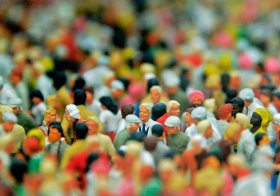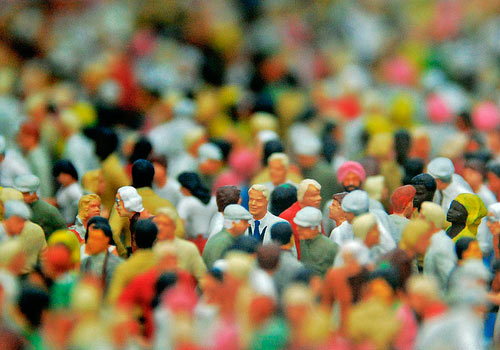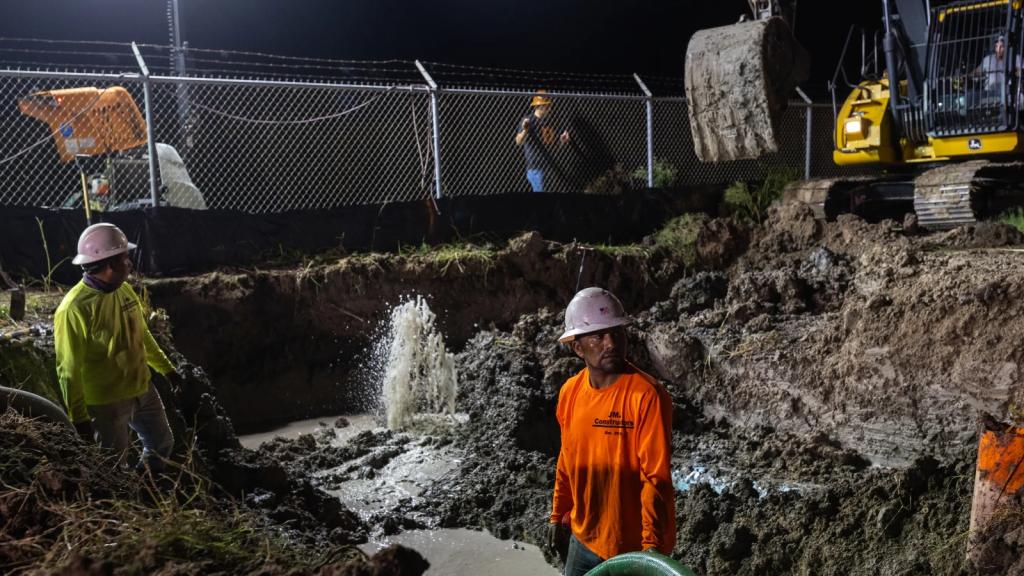
Photo by boinink.
One of the primary psychic barriers to accepting the fact of climate change is the notion that human beings can reshape something as large and complex as the earth itself. On an intuitive level, it seems incredible. Presumptuous, even. Sen. James Inhofe (R-Okla.) put it this way: “The arrogance of people to think that we, human beings, would be able to change what He is doing in the climate is to me outrageous.”
It hardly needs pointing out that He, in this instance, is God. It’s not unusual to see this sentiment expressed in religious terms. After all, if human beings are reshaping the basic biophysical systems of the planet, they are like unto gods. What terrifies people about that idea is not so much the power itself, but the responsibility that comes with it. If the entire biosphere is the product of our decisions and actions, then we hold the fate of the only known life-bearing planet and all the life on it in our hands. That is an almost unthinkably heavy burden to bear. It seems only God could bear it.
Nonetheless, there it is. We have entered what a growing number of earth scientists are calling the “Anthropocene,” a geological era characterized by the influence of a single species.
This new video — from an educational project, Anthropocene.info, developed by the Planet Under Pressure conference — does a great job introducing the idea:
The most mind-bending aspect is that 1950, the point when change became truly massive and hyper-speed, wasn’t that long ago. People born before 1950 have grown up alongside changes of a scope and scale that defy anything in their education or personal experience. Their cultural identities have been shaped under circumstances that no longer obtain and assumptions that no longer apply. (This is why I’m always going on about cohort replacement.)
The Anthropocene represents a shift in perspective that goes beyond the political or economic. It is ethical, ontological, even existential. The full implications won’t be clear for many years. We are still denying it or negotiating with it or trying to squeeze it into conventional categories. It will be for our children to fully come to terms with it — and, unfortunately, to suffer for our failure of imagination.




